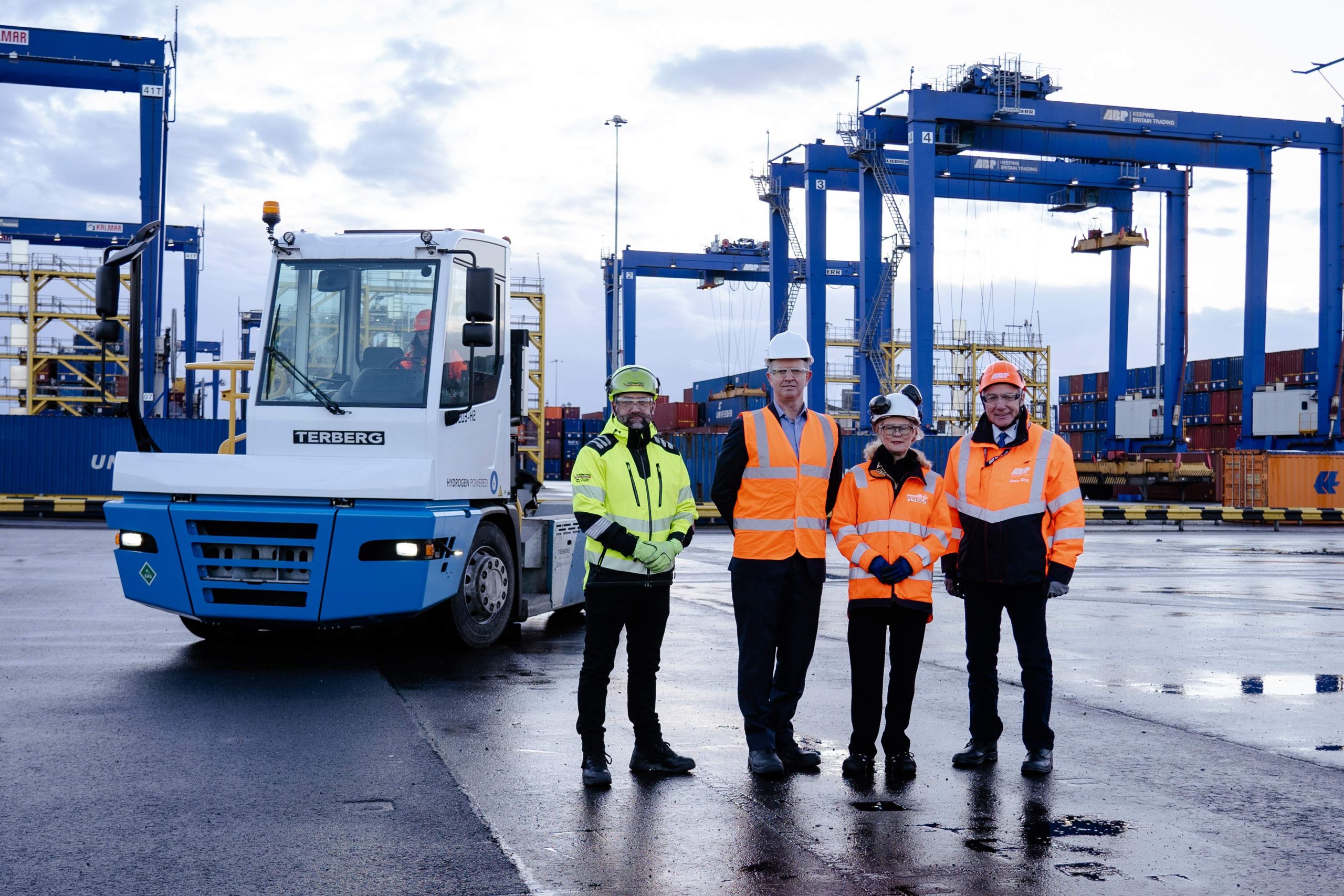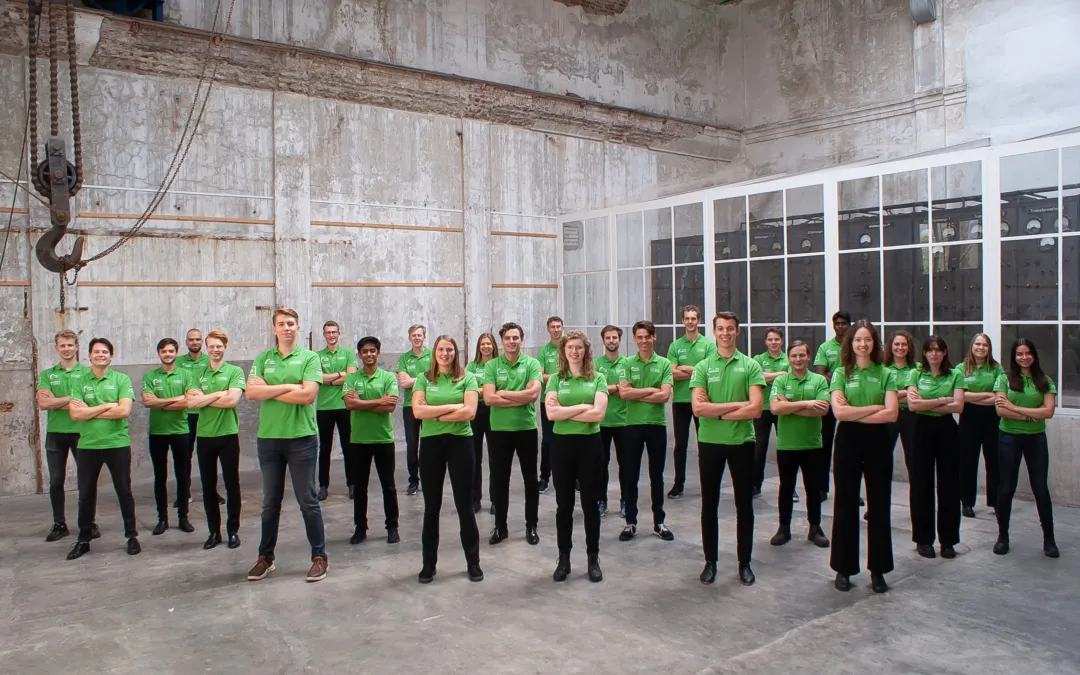ABP: Decarbonising Port Operations Through Hydrogen

Associated British Ports (ABP) has become the first UK operator to trial hydrogen-powered quayside machinery. Hydrogen Industry Leaders spoke to ABP about how it is decarbonising port operations by using hydrogen.
The joint pilot project received funding from ORE Catapult through Innovate UK’s Hydrogen Innovation Initiative (HII), following the funding of initial feasibility from the Department for Transport’s Clean Maritime Demonstration Competition.
It is said that the demonstration is a critical activity in the bid to decarbonise port operations, and an important step in the creation, delivery, and use of hydrogen at the Port of Immingham.
Finding A Diesel Alternative Was The Main Focus For ABP
Hydrogen Industry Leaders spoke to Tim Morris – Head of Corporate Communications at Associated British Ports about the project.
He began by explaining that ABP wanted to find a way to decarbonise terminal tractors and hydrogen was the solution: “Terminal tractors are a category of vehicle which, so far, has been difficult to find alternatives to diesel for. That’s due to the size, load, and performance requirements of the vehicle. An electric motor, for example, wouldn’t give you enough of the right sort of power in a practically sized vehicle.”
So the trial is addressing the issues around ‘hard to abate’ non-road mobile machinery.
The trial of the terminal tractor has been specially adapted by the manufacturer Terberg to run on hydrogen rather than diesel, with the aim to reduce carbon emissions and improve air quality.
While, ABP is providing the operating environment for the trial to take place, for example, the company is operating the trial vehicle alongside comparable diesel-fuelled vehicles undertaking the same tasks to see if it has comparable performance and productivity. Alongside the vehicle, Air Products is providing a modular hydrogen refuelling station and the hydrogen.
The Maritime Sector Must Work Urgently And Collaboratively To Reach Net Zero
It is essential that the maritime sector makes the transition to becoming more sustainable, with the International Maritime Organization (IMO) challenging the shipping industry to cut annual GHG emissions by at least half by 2050, compared to 2008.
While shipping goods can be 17 times more efficient than air, and 10 times more efficient than road, figures have suggested that the sector represents almost 3 per cent of global carbon emissions.
In addition, there have also been projections that maritime shipping could account for 17 per cent of total annual carbon emissions by 2050, if left unchecked (Carbon Trust).
Therefore, urgent action is needed by the industry given its important role in tackling climate change. The sector must work collaboratively and comprehensively on the path to net zero.
Tim expressed that a variety of the sector’s carbon emissions comes from vessels and not from port operations, but ABP is working on its contribution to shipping decarbonisation: “For port operations themselves, we’ve got a good record of reducing our own emissions.”
As a local example, in the Humber ports, carbon emissions since 2014 have been reduced by 33 per cent (10,168 tonnes).
ABP Is Supporting The Humber In Becoming The UK’s Largest Green Hub
Kickstarting the green fuel economy is a focus for ABP, Tim revealed that the trial is just the beginning of the Humber becoming a green hub: “The terminal tractor itself is something of a taster for a series of big developments going on around the Humber which will turn the area into the UK’s largest green transport, trading, and storage hub.”
It’s a story of green energy industrial revolution and the levelling up that comes with it.
Currently, the Humber industrial cluster contributes £18 billion a year to the UK economy and supports 360,000 jobs in heavy industry and manufacturing. The Humber’s infrastructure will be crucial in helping the UK reach its net zero goals, but also cement its position as a global decarbonisation leader.
Trialling hydrogen-powered quayside machinery is not the only way in which ABP is supporting the Humber in becoming the UK’s largest green transport, trading, and storage hub.
ABP is working in collaboration with other companies to elevate the hydrogen industry. One example of this is working with Air Products for the large-scale import and processing of green hydrogen at Immingham.

